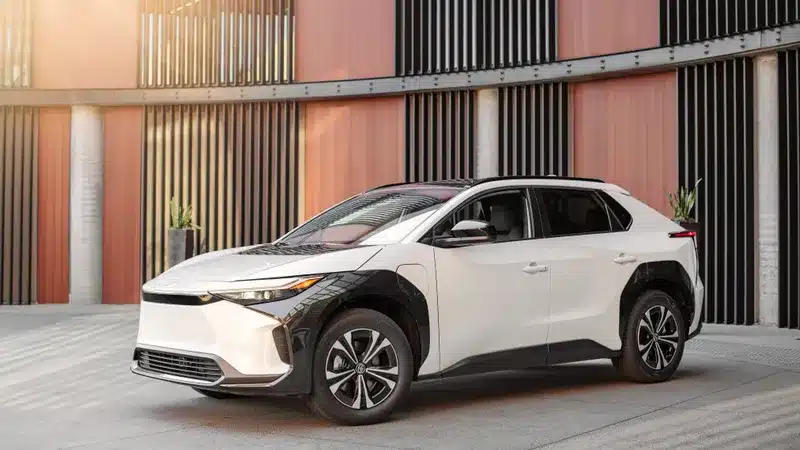Toyota Joins Ionna EV Charging Network
According to a July 10 press release, Toyota Motor North America is investing in Ionna, giving Toyota and Lexus owners access to the highly anticipated electric vehicle charging network.
Toyota has announced its participation as a founding partner in the Ionna joint venture, joining a consortium of prominent automakers that includes BMW, General Motors, Honda, Hyundai, Kia, Mercedes-Benz, and Stellantis. This partnership aims to advance innovation and collaboration within the EV industry to build out much-needed EV charging.
Although Toyota has confirmed its involvement in the joint venture, the company has not disclosed the amount it plans to invest in Ionna. This move aligns Toyota with other leading automakers in a strategic effort to drive technological advancements and strengthen industry ties.

“We are excited to announce our support of IONNA to deploy DC fast chargers throughout the U.S. and Canada,” said Ted Ogawa, president and CEO of Toyota Motor North America, in the release.
“We believe this will not only promote the adoption of BEVs and increase customer confidence in the technology, but it will provide our Toyota and Lexus customers with access to IONNA’s rapidly growing charging network in North America,” Ogawa said.
Ionna has ambitious plans to install at least 30,000 charging ports across North America by 2030, with the public network set to begin opening later this year. The charging stations will be equipped with both North American Charging Standard (NACS) and Combined Charging System (CCS) connectors, ensuring compatibility for all battery electric vehicle drivers.
In a strategic move, Ionna has selected Durham, North Carolina, as its global headquarters. This location is expected to facilitate rapid scaling of the company’s operations.
Matt Gladdek with the Greater Durham Chamber of Commerce said that because Durham is the home of the Research Triangle, offers a low cost of living, and has a focus on education, these things make it an easy sell for a new and fast-growing industry.
“A city that’s growing like ours and a region that’s growing like ours, there’s a lot of opportunity for new ways of thinking and really great universities here to help bring them the talent they need,” Gladdek said.
Durham Mayor Leo Williams said that since other companies such as Kempower are also setting up shop in Durham, the city’s reputation precedes itself, and now it’s about repeating the benefits for local workers.
“We’ve done our part. We’ve made sure that our community is attractive and, you know, while we’re talking about electric charging stations, the real story is we’re getting more jobs. We’re getting more jobs that pay a really good wage and more opportunities for our folks that are coming through our school system and our university system,” Williams said.
To enhance the user experience, charging network functions and services, including navigation, route planning, payment processing, and energy management, will be accessible via participating automakers’ vehicle infotainment units. Furthermore, Ionna intends to power these charging stations with renewable energy, underscoring its commitment to sustainability.
Toyota is also establishing a significant presence in North Carolina, with plans to open its 13th manufacturing plant in the state by 2025. The $14 million facility will focus on producing batteries for EVs, creating more than 5,000 jobs. The battery production lines will be launched in phases through 2030, eventually reaching a total capacity of 30 gigawatt-hours per year. Production is slated to begin in 2025.
In May 2024, Toyota announced a $1.4 billion investment in preparing its Toyota Indiana facility, located in Princeton Indiana, for the assembly of an all-new, three-row battery electric SUV.
The company’s commitment to electrification is evident, with more than one-quarter of the 2.6 million Toyota vehicles sold last year being electrified. This includes a mix of full battery electric vehicles, hybrids, plug-in hybrids, and fuel cell vehicles, as noted in the Ionna release.
